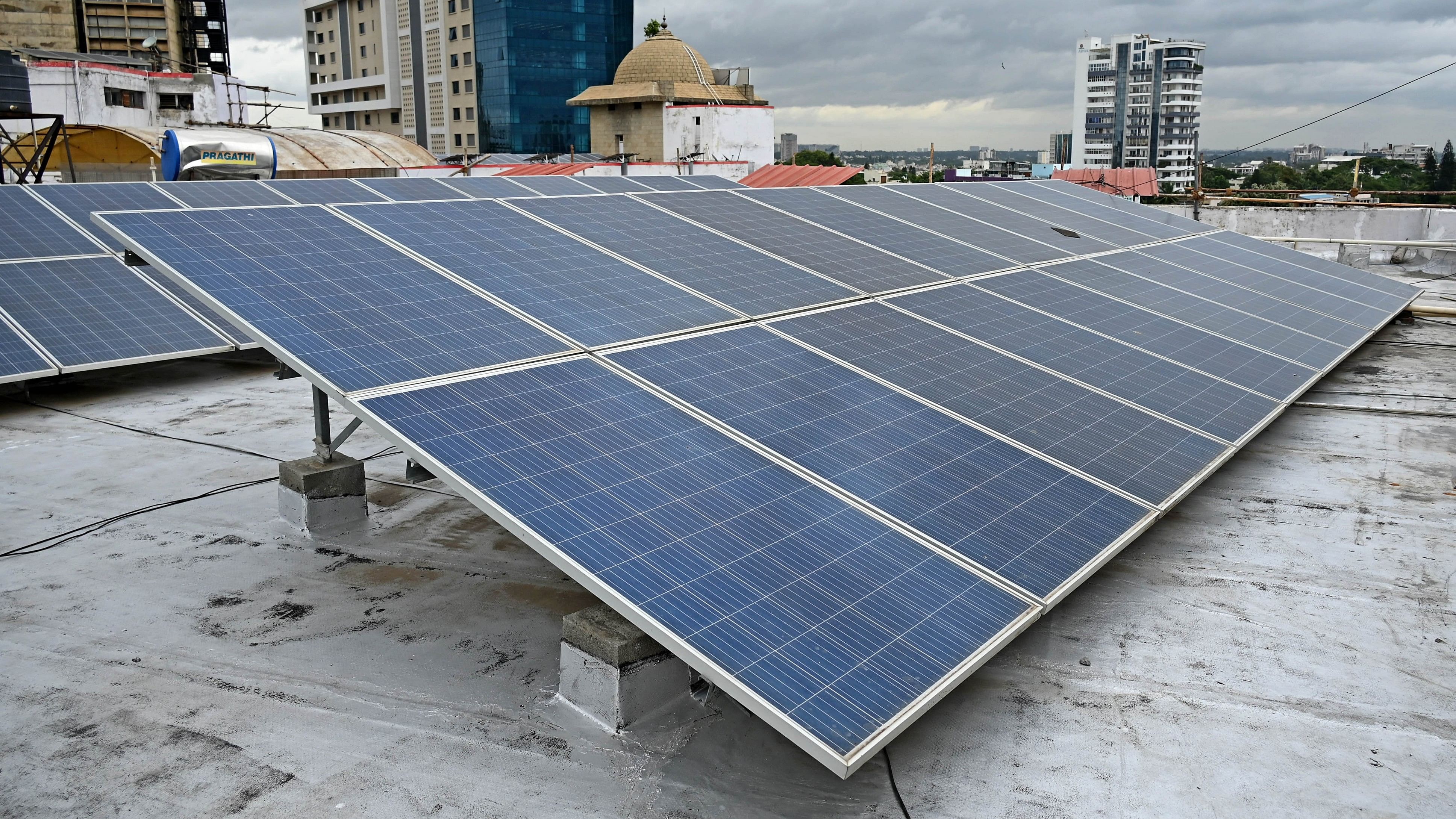
Escoms will have to empanel service providers who can enable the sale of excess rooftop solar power.
DH File Photo
People with solar rooftop systems can now start selling the excess power they generate to consumers keen on using green energy to power their houses. Till now, those with solar rooftop systems could sell the excess power only to escoms owing to the lack of systems and guidelines on peer-to-peer trading.
The Karnataka Electricity Regulatory Commission (KERC), had in January released the draft guidelines named “KERC (Implementation of Peer to Peer Solar Energy through Block-Chain based Platform) Regulations, 2024,” to enable such transactions in the state. Now, after holding public consultations and hearing the stakeholders, the commission has fine-tuned and released the final regulations.
Soon, escoms will have to empanel service providers who can enable the process. “Now that we have notified the regulations, the escoms will have to empanel service providers who will act as middlemen and allow the sales and purchase of power between the producers and consumers,” a senior KERC official told DH.
The draft regulations had received a number of suggestions and objections from experts and stakeholders. “We did receive a number of suggestions and objections during the public hearing held in March. We analysed them and included them in the final rule set to the extent possible,” the official added.
While the draft was focused on using blockchain technology for transactions, the final notification makes room for various technologies that could serve the purpose.
From blockchain to Internet of Things devices to micro grid technologies, a number of modern technologies could assist the implementation
of peer-to-peer solar
transactions.
The regulation also fixes responsibilities for all the stakeholders involved, especially the escoms and the service providers.
Peer-to-peer trading comes with a host of advantages. It promotes the use of clean energy by encouraging people to opt for solar rooftops since the return of investment could be sooner if they are able to sell it to the public. Also, even those with space constraints can use green energy by purchasing it from such producers.
From a larger perspective, it could also increase the state’s power production.